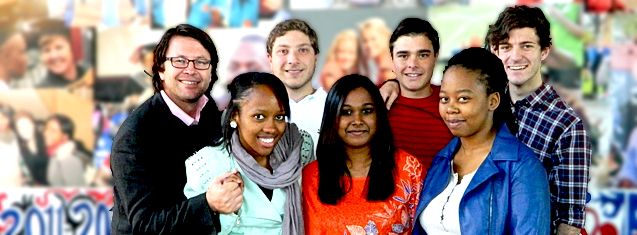
Back, from the left: Rudi Buys (Dean: Student Affairs), Philip Kitsopoulos (BCom Law), Ulrich Kristen (Medicine) and Stephan Erasmus (Medicine).
Front, from the left: Sebabatso Makafane (Nursing), Kaylene Pillay (Psychology) and Vuyisile Kubeka (BA Media and Journalism).
Six Kovsie students were selected to attend a three-week seminar at the Stanford Sophomore Collegein September 2014.
Stanford Sophomore College (SoCo) is an immersive learning experience. Participants attend class meetings during the morning and afternoons include class activities, explorations of Stanford, field trips and organised events.
UFS students were invited to apply for one of six SoCo courses in February 2014. After the long wait, the successful Kovsie applicants were recently announced.
The names of these outstanding Kovsie students are:
- Sebabatso Makafane, Vuyisile Kubeka and Philip Kitsopoulos – all attending the New Millennium Mix: Crossings of Race and Culture course,
- Ulrich Kristen – attending the Resistance Writings in Nazi Germany course,
- Kaylene Pillay – attending the Ghost Stories: Why the Dead Return and What They Want From Us course, and
- Stephan Erasmus– attending the Responses to the AIDS Epidemic course.